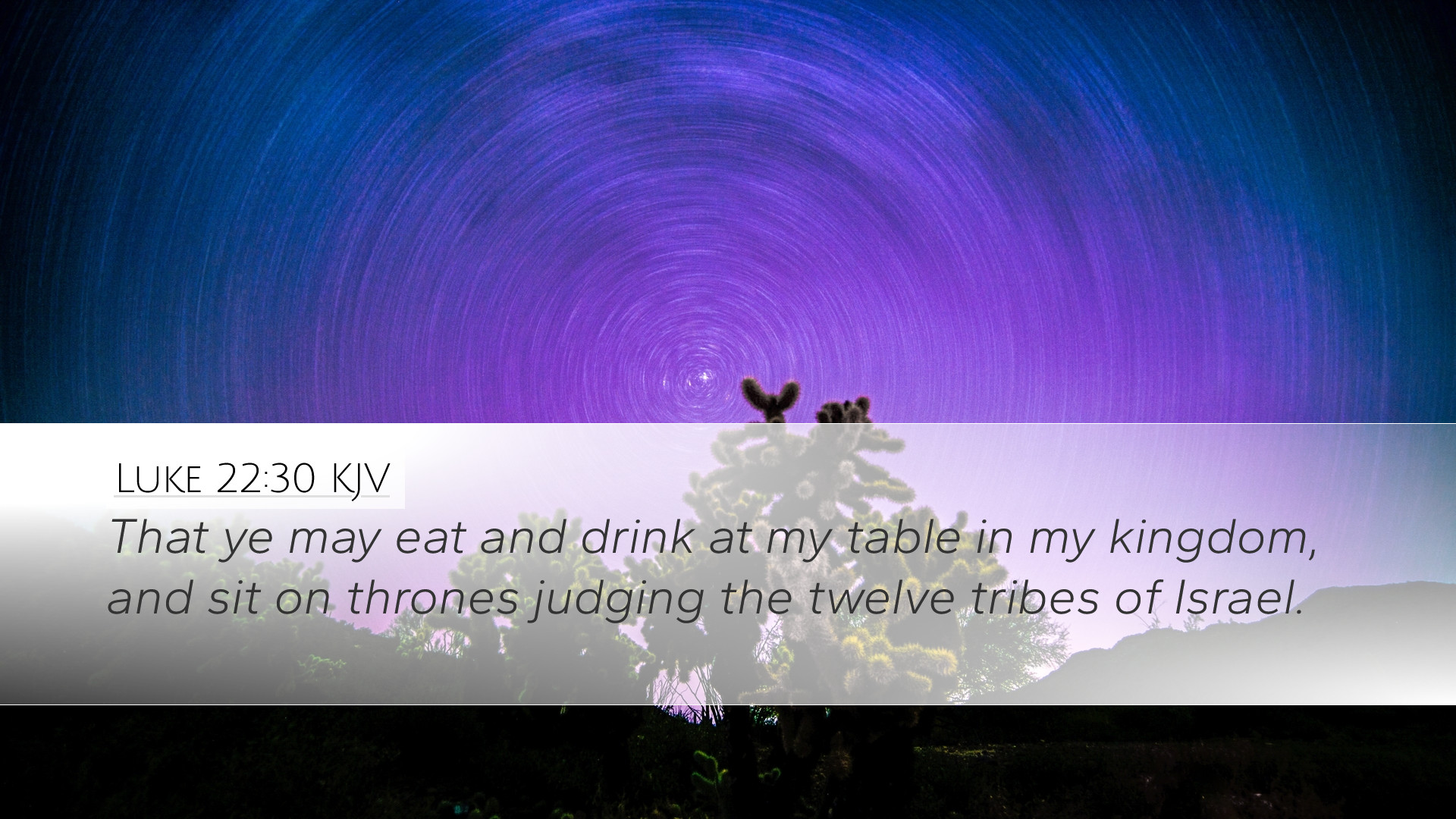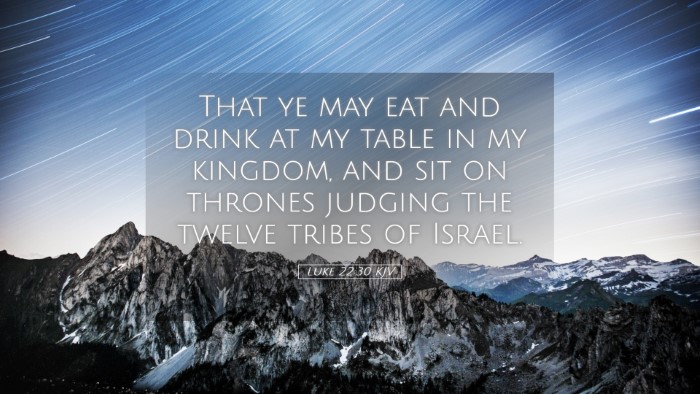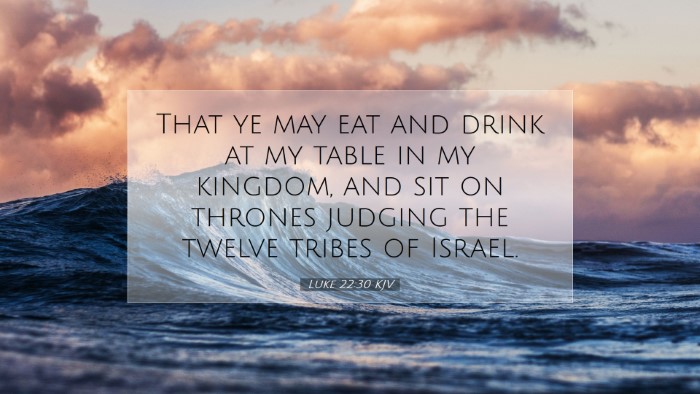Commentary on Luke 22:30
Luke 22:30 (KJV): "That ye may eat and drink at my table in my kingdom, and sit on thrones judging the twelve tribes of Israel."
Introduction
The verse captures a profound promise made by Jesus to His disciples, offering a glimpse into the future kingdom and their roles within it. The verse is situated in the context of the Last Supper, where Jesus is preparing His followers for the trials they are about to face and the glory that will follow. This commentary synthesizes insights from various public domain commentaries to elucidate the theological richness of this verse.
Theological Insights
1. The Table of the Kingdom
Jesus' reference to "eating and drinking at my table" symbolizes intimacy and fellowship with Him in the eschatological banquet. According to Matthew Henry, this banquet signifies the blessings and joys of the future kingdom where believers will experience communion with Christ and one another. The table motif emphasizes the inclusivity of Christ's kingdom, where all His followers share in His glory.
2. The Role of Disciples
Jesus promises His disciples that they will "sit on thrones judging the twelve tribes of Israel." Albert Barnes notes that this statement illustrates the authority and responsibility bestowed upon the apostles in the kingdom. This role is not merely a future promise but also highlights the importance of their leadership and guidance in the early church. They are tasked with shepherding the flock and preserving the teachings of Christ.
3. The Judgment of the Twelve Tribes
The promise of judging the tribes is a multifaceted statement. Adam Clarke interprets this as an affirmation of the foundational role the apostles would have in the spiritual governance of God's people. This judgment is not to be understood in a punitive sense but rather as a divine appointment to instruct, guide, and discern the truth of God’s revelation. It speaks to the continuity of God’s covenant people from Israel to the church.
Exegetical Considerations
Understanding this verse requires paying attention to both its linguistic and historical contexts. The use of "kingdom" indicates not just a future reality but also the current reign of Christ. The notion of the table suggests an invitation to partake in the blessings of the kingdom anticipated in the Messianic feast.
- Linguistic Notes: The Greek term for "table" (τράπεζα) is significant and indicates a place of hospitality and communal sharing.
- Historical Context: The Jewish expectation of divine judgment and restoration of Israel plays a crucial role in how this promise would have resonated with the disciples.
Implications for the Believer
This verse conveys critical implications for contemporary believers:
- Hope of Glory: The promise of eternal fellowship with Christ frames our present trials in light of future glory.
- Call to Discipleship: Being called to judge indicates an active role for believers in spreading God’s truth and upholding justice.
- Unity in Christ: This communal aspect of the kingdom underscores the importance of unity and shared purpose among believers.
Conclusion
Luke 22:30 serves as a powerful reminder of the hope and purpose that await believers in the kingdom of God. The insights gathered from various commentaries enrich our understanding of this verse, encouraging both pastors and scholars to reflect on the significance of the future promise of communion with Christ and the responsibilities we bear as His followers. As we anticipate the coming kingdom, may we live lives that reflect the heart of Christ and the call to serve and lead within His Church.


